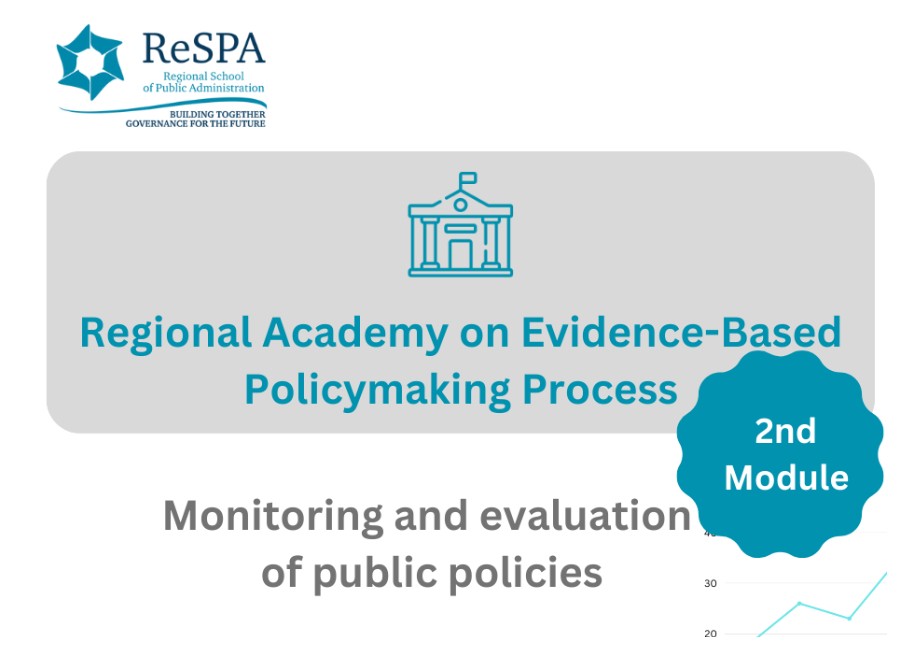
Regional Academy on the Evidence-Based Policymaking Process 2nd Module: Monitoring and Evaluation of Public Policies
ReSPA launched Regional Academy on the evidence-based policymaking process in October last year to enhance policymaking in the Western Balkan's public administrations and make them more efficient and effective.
We want to strengthen the capacity of civil servants dealing with policymaking with knowledge about methods and tools that can make complex policy planning work more efficient and harmonize approaches in policy planning throughout the Western Balkan region to contribute to a better understanding of the common problems, definition of solutions, and intense preparation of ReSPA Members for full EU integration.
After the completion of the Academy, trainees are supposed to:
- Assess the environment for planning data-based policies;
- Describe the importance of using data in the planning of public policies (identify relevant sources, ways of applying data, their prioritization and synthesis, ways of presenting data and creating internal databases);
- Recognize and describe the elements of the planning cycle and their significance and interrelationship;
- Understand the interdisciplinary approach in policy planning, as well as the place of planning documents in the broader process of public administration reform;
- Recognize, describe, and apply certain methodological tools in policy planning;
- Recognize and define critical requirements from the EU integration process - EU principles of public administration, OECD principles, principles of good public administration, and principles of open government.
2nd Module of the Academy focuses in particular on monitoring and evaluating public policies. It will connect theory and practices and tackle important aspects of monitoring and evaluating public policies. In this journey, trainees will have the strong support of prominent experts in this field, some of them are:

Almedina Vukić Martinović is a Ph.D. candidate in the Faculty of Political Sciences, University of Montenegro. Almedina is Acting Assistant to the Secretary-General and Head of the Sector for Strategic Planning and Coordination of Government policies. Her expertise spreads throughout developing a methodology for policy planning, gender-mainstreaming in policy planning, establishing the Network of Civil Servants for Strategic Planning, cooperation with the academia and researchers and, in the last three years, the government's mid-term and annual working programs.

Jelena Zvizdojević is Ph.D. of Economic Sciences, Assistant Director at the Statistical Office of Montenegro – MONSTAT. She was involved in the preparation of the strategic documents within the MONSTAT and the Government of Montenegro (Strategy of the development of the Department of International Cooperation and European Integration, Dissemination Strategy, Development strategy of Official Statistics 2014-2018, Negotiation position for chapter 18, and many others). Jelena is also the author and co-author of 30 professional papers published in domestic and international magazines and publications.

Csaba Toro is a Ph.D. in International Relations at Budapest Corvinus University. Currently, Csaba is Hungarian EU integration adviser in the Minister of European Affairs, Montenegro. Former Dean of the Faculty of Law, Karoli Gaspar University of the Reformed Church in Hungary, Budapest and external adviser to the Hungarian National Assembly.

Olivera Komar is Ph.D. and professor at the Faculty of Political Science, University of Montenegro. She acts as the national coordinator or principal investigator of several international scientific projects for Montenegro, such as are European Value Survey EVS and Comparative Study of Electoral Systems CSES. Olivera is also one of the founders and the principal investigator of the Montenegrin National Election Study MNES and author or co-author of many evidence-based studies and strategic documents and evaluations.


